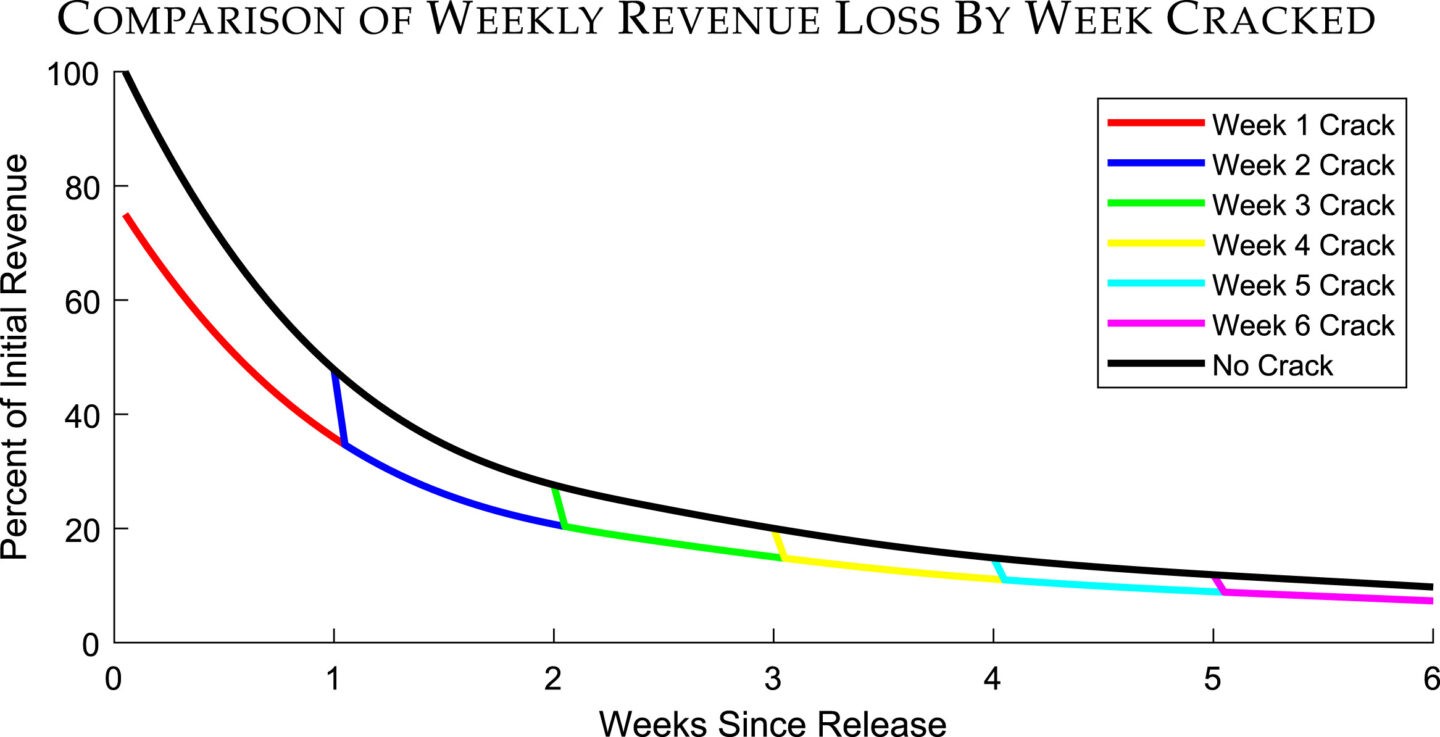
A recent study has shed light on the financial impact of digital rights management (DRM) technology in the video game industry. The research reveals that game publishers could see their revenues drop by up to 20% if Denuvo, a popular anti-piracy solution, is compromised soon after a game's release.
Denuvo has been a go-to choice for many major game publishers seeking to protect their intellectual property from piracy. However, the effectiveness of this DRM system has been a topic of debate within the gaming community.
The study, conducted by independent researchers, analyzed sales data from multiple game releases over the past few years. It compared the revenue streams of games using Denuvo protection against those that either didn't use DRM or had their protection cracked within days of launch.
The findings indicate that games with intact Denuvo protection consistently outperformed their counterparts in terms of sales during the crucial initial weeks after release. This period is often considered the most lucrative for game publishers, as it typically sees the highest volume of full-price purchases.
However, when Denuvo was cracked quickly - usually within the first week of a game's release - publishers saw a notable decline in sales. The study estimates this reduction to be around 20% on average, though the exact figure varied depending on factors such as game genre and target audience.
These results highlight the ongoing arms race between game publishers and crackers. As DRM technology becomes more sophisticated, so do the methods employed by those seeking to circumvent it.
The study also touches on the broader implications of DRM use in the gaming industry. While it can protect publishers' revenues in the short term, some gamers argue that DRM can negatively impact the user experience, potentially leading to long-term customer dissatisfaction.
As the gaming landscape continues to evolve, publishers will need to carefully weigh the benefits of robust DRM protection against potential drawbacks. This new research provides valuable data to inform these decisions, emphasizing the significant financial stakes involved in the ongoing battle against game piracy.